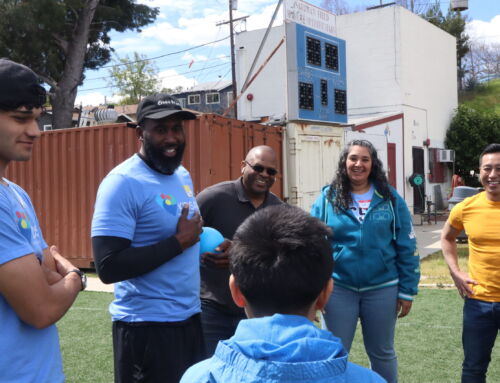At Kidsave and the EMBRACE project, we know that mentoring can change a child's life. Mentoring a child can lead to a higher chance of success, particularly when faced with adversarial circumstances. Having one consistent person in their life to guide, support, and encourage them can help them overcome challenges. It's important for Black and Brown children also to have people in their lives who can teach them about their culture and heritage and provide an understanding of their background, which will, in turn, help them to see their reflection and believe in themselves. In instances when the child cannot be with their biological family or kin, mentoring relationships are a great way to provide this cultural connection and bond.
The tips below can lead to a successful mentoring relationship:
Always be consistent
Consistent and stable adult relationships are significant for all children, especially for children growing up in otherwise unstable environments. They help them build trust, know they can trust you, and listen to you better when you do show up. Being a consistent mentor can help model healthy relationships for children in foster care who may have otherwise had negative experiences with moving from home to home or family to family.
Be persistent
Persistence, flexibility, and patience are crucial to building meaningful relationships with children in foster care who have faced adversarial circumstances. Persistence shows children that you are dedicated to their growth, even when slow progress or setbacks occur. Flexibility allows you to adapt your approach to meet their changing needs and circumstances. Patience is essential, as it helps you endure challenging situations without becoming frustrated. By being persistent, flexible, and patient, you can help children in foster care develop the confidence to overcome obstacles, ultimately providing the steady support they need to thrive.
Care deeply
Empathy is at the heart of effective mentoring. It involves understanding and sharing the feelings of another person. You create a safe and supportive environment where children feel understood and valued when you mentor with care and empathy. This means actively listening to them, acknowledging their feelings, and showing that you genuinely care about their experiences and perspectives. Empathy helps you build a solid emotional connection, fostering trust and creating openness. By applying empathy in your mentoring, you can better understand the unique challenges children in foster care face and provide the compassion and support they need to navigate those challenges.
Model responsibility
Children in foster care benefit significantly from role models who demonstrate responsibility and provide a structured environment. By being a responsible mentor, you can show children the importance of accountability, punctuality, and following through on commitments. Providing structure involves creating a consistent and predictable environment. This structure will help achieve an effective and beneficial relationship between the mentor and the child. Consistently modeling responsible behavior and maintaining a structured approach can help children develop their sense of responsibility, an essential quality for future success.
Clearly communicate
Effective communication and active listening are essential for successful mentoring as they help build strong connections. Some strategies for effective communication include setting clear expectations, listening actively, providing constructive feedback, and respecting boundaries. By employing these strategies, mentors can create an open and honest dialogue with children, making them feel heard and valued and fostering a deeper, more trusting relationship.
Don't forget to have fun!
Incorporating fun into mentoring is crucial for creating a strong, positive relationship with children. Find ways to bond over fun activities and show the child that you are engaged and care about their interests; spending more time doing activities the children like makes you more likely to be seen as a friend. Fun activities help build rapport and create opportunities for learning and growth in a relaxed and enjoyable setting, whether playing games, exploring hobbies, or going on outings; incorporating fun into your mentoring sessions makes the experience more engaging and memorable for you and the child.
At Kidsave and the EMBRACE project, we believe effective mentoring can profoundly impact a child's life. Through consistency, persistence, care, responsibility, clear communication, and fun, mentors provide essential support that helps children overcome challenges and reach their full potential. By applying these principles, mentors can make a lasting positive impact on children's lives.
You can become a mentor through one of Kidsave's programs! Kidsave's Weekend Miracles program is available to Los Angeles, CA, or Houston, TX residents.


